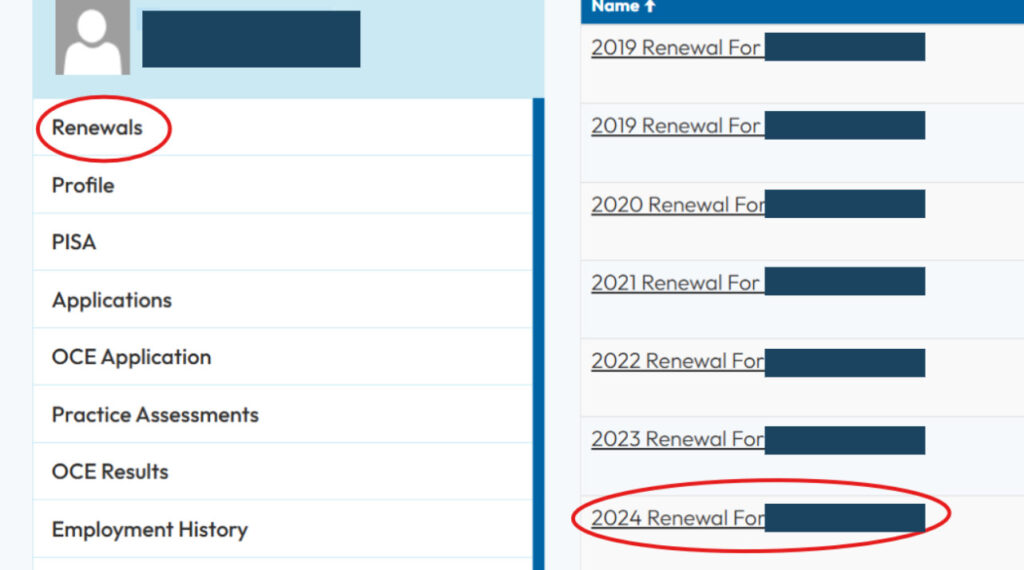Perspectives
Reading Perspectives is the best way to stay up to date with news and updates from the College. It’s also packed full of helpful resources for physiotherapists.
Subscribe using the form at the bottom of this page.
For more information, please contact communications@collegept.org

You’re Invited! New Standards Webinar
The College’s Practice Advice and Policy Teams are back with another webinar focused on the new standards.
This time, they’ll be going over the Evidence-Informed Practice Standard and the Titles, Credentials, and Specialty Designations Standard. Together, these standards make up Group 2, which came into effect on November 1, 2024.
The webinar will cover how these standards apply in practice and the top highlights from each. We’ll also answer common questions.
The webinar will take place on March 4 from 12:30-1 p.m. EST. Pre-registration is required.
Human Trafficking: What Physiotherapists Should Know
Would you be able to recognize the signs that a patient might be a victim of human trafficking?
Victims of human trafficking often seek health services in an emergency, for physical injury or assault, gynecological services or perinatal care, routine follow-up for chronic conditions, or following workplace injuries – putting them in direct contact with physiotherapists who work in emergency rooms, private clinics, pelvic health clinics, and many other healthcare settings.
In this month’s blog we look at how physiotherapists can identify and help victims of human trafficking.

Case of the Month: Consent is Key
A patient should never be surprised about what happens during physiotherapy treatment.
The physiotherapist must be sure the patient understands what is going to happen before the treatment begins by providing information about the nature of the treatment, its benefits, risks, potential side effects, alternative courses of action, and any possible consequences of not having the treatment. The physiotherapist must also answer any questions the patient has.
In a new Case of the Month, we examine what happens when these crucial conversations are lacking.
Featured Standard: Collaborative Care
This standard came into effect on February 1, 2025 and replaces the previous Collaborative Care Standard.
It establishes that physiotherapists should collaborate with patients, healthcare providers, and others (such as caregivers or other members of the health team) to provide safe, effective, quality, concurrent care, when indicated by patients’ healthcare needs and preferences.

Top five highlights from the Collaborative Care Standard:
- Collaboration Is at the Heart of Care
Patients and their substitute decision makers, caregivers, other healthcare providers, and members of your team are all partners in the delivery of safe, effective, and patient-centered care.
- Know When to Involve Other Health Professionals
Refer or consult with another provider if their expertise better aligns with the patient’s needs and goals.
- Check if Concurrent Care Is Right for Your Patient
Make sure that the concurrent approaches align, benefit the patient, and are a good use of resources before engaging in concurrent care.
- Be Mindful About the Risks
Look out for risks such as conflicting approaches, inefficient use of resources, or the risks outweighing the benefits to patients. Take steps to manage risks.
- Clearly Communicate If Discontinuing Care
If you decide to decline or stop physiotherapy care in a concurrent treatment situation, explain your reasons to the patient and document the conversation.
Make sure you’ve reviewed the full Collaborative Care Standard.
Myth vs Fact
A patient’s treatment preferences should influence my treatment plan.
Is this a myth or a fact?
Practice Advice Question
I work at a rehab hospital where patients stay while recovering from strokes. One of my patient’s family wants their loved one to have more physiotherapy care than our staffing levels can offer. They have proposed hiring a physiotherapist from the community to provide additional treatment.
What should I consider when working collaboratively with a physiotherapist from outside of the hospital?
Take This Short Survey to Contribute to Research on How Physiotherapists Manage Professional and Sexual Boundaries
Students from the University of Toronto Physical Therapy program are inviting Ontario physiotherapists to complete a short survey as part of their research on how physiotherapists recognize and manage professional and sexual boundary violations.
The survey is anonymous and will take around 10 minutes to complete. All questions are optional. All data will be securely housed and analyzed at the University of Toronto.
The students hope to use this research to inform future curriculum and policy development, along with the creation of new resources to support PTs in their practice.
Black History Month Resources

This February we’re celebrating the incredible Black physiotherapists and healthcare professionals who have shaped patient care in Canada. Their contributions have not only advanced our healthcare system but also opened doors for future generations.
Learn more about Black history, and Black healthcare professionals and organizations that are making a difference today, with these resources:
- Access resources, webinars and other learning material from A Black People’s History of Canada.
- Explore noteworthy figures in Canadian Black history on the Government of Canada’s website.
- Familiarize yourself with the work of the Black Health Alliance.
Make connections and advance your career with the Black Healthcare Professionals Network.
Don’t Forget, Annual Renewal and PISA due March 31
Annual Renewal
All physiotherapists in Independent Practice must complete annual renewal and pay the registration fee of $648 by 11:59 p.m. on March 31 to avoid additional late fees.
If you have any questions, please contact the Renewal team at renewal@collegept.org or 1-800-583-5885 ext. 222.
Professional Issues Self Assessment (PISA)
All physiotherapists in both Provisional and Independent Practice must complete PISA by March 31.
This year’s PISA exercise focuses on important updates to the College’s standards and the new Code of Ethical Conduct.
If you have any questions, please email pisa@collegept.org or call 1-800-583-5885 ext. 222.
Annual Renewal Tip: How to Check Your Practice Hours
Did you know you can check your practice hour balance in the PT Portal?
Here’s how:
1. After logging in, click on “Renewals” in the left-hand column.
2. Select your most recently completed year. If you completed Renewal in 2024, select 2024.

3. Click “Practice Hours” in the left-hand column.
4. Scroll down until you see a table with your reported hours for the previous four years.
Welcome New Registrants
The College would like to welcome our newly registered physiotherapists.





Share Your Thoughts